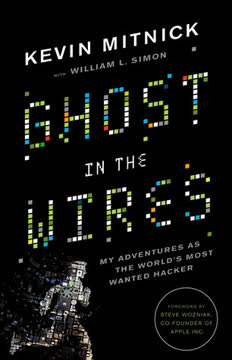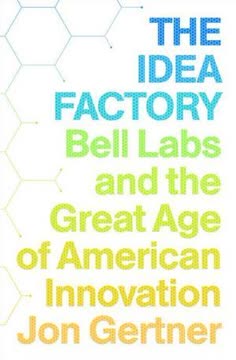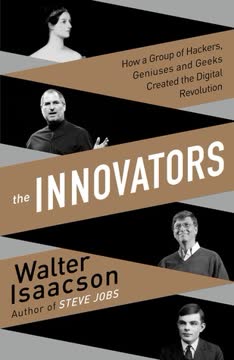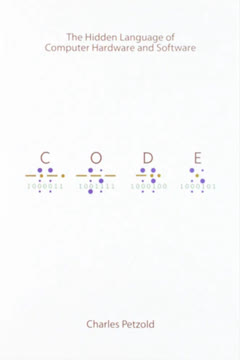मुख्य निष्कर्ष
1. 1950 और 1960 के दशक में MIT में हैकर संस्कृति का जन्म
"हैकरों का मानना है कि सिस्टम—दुनिया के बारे में जरूरी सबक—चीजों को तोड़-फोड़ कर, यह देखकर कि वे कैसे काम करती हैं, और इस ज्ञान का उपयोग करके नई और अधिक रोचक चीजें बनाने से सीखे जा सकते हैं।"
हैकिंग की शुरुआत। हैकर संस्कृति का उदय मैसाचुसेट्स इंस्टीट्यूट ऑफ टेक्नोलॉजी (MIT) में 1950 के अंत और 1960 के शुरूआती वर्षों में हुआ। कुछ प्रतिभाशाली छात्र, जो कंप्यूटर की संभावनाओं से मोहित थे, ने उपलब्ध मशीनों की सीमाओं को परखना और आगे बढ़ाना शुरू किया। ये शुरुआती हैकर जिज्ञासा, रचनात्मकता और सिस्टम को समझने तथा सुधारने की इच्छा से प्रेरित थे।
प्रमुख हस्तियां और नवाचार। शुरुआती उल्लेखनीय हैकरों में शामिल थे:
- पीटर सैमसन: TX-0 कंप्यूटर के लिए एक संगीत प्रोग्राम बनाया
- एलन कोटोक: कंप्यूटर के लिए पहला शतरंज प्रोग्राम विकसित किया
- स्टीव रसेल: स्पेसवार नामक पहला इंटरैक्टिव कंप्यूटर गेम प्रोग्राम किया
इन अग्रदूतों ने कंप्यूटिंग में भविष्य के नवाचारों की नींव रखी और तकनीक की खोज और महारत के इर्द-गिर्द एक अनूठी संस्कृति स्थापित की।
2. हैकर एथिक: खुलापन, साझा करना और व्यावहारिक अन्वेषण का दर्शन
"कंप्यूटरों तक—and कुछ भी जो आपको दुनिया के काम करने के तरीके के बारे में कुछ सिखा सकता है—की पहुँच असीमित और पूर्ण होनी चाहिए। हमेशा Hands-On Imperative को प्राथमिकता दें!"
मूल सिद्धांत। MIT में विकसित हैकर एथिक, शुरुआती हैकर समुदाय के लिए मूल्य और विश्वासों का एक समूह था। इसके मुख्य सिद्धांत थे:
- सूचना और तकनीक तक मुफ्त पहुँच
- शक्ति और अधिकार का विकेंद्रीकरण
- कौशल और रचनात्मकता पर आधारित मेरिटोक्रेसी, न कि औपचारिक प्रमाणपत्रों पर
- तकनीक की परिवर्तनकारी शक्ति में विश्वास
कंप्यूटिंग पर प्रभाव। इस दर्शन ने निम्नलिखित को जन्म दिया:
- कोड और ज्ञान का खुला साझा करना
- सहयोगात्मक समस्या समाधान
- तेज़ तकनीकी प्रगति
- निरंतर सीखने और सुधार की संस्कृति
हैकर एथिक ने कंप्यूटिंग के विकास को गहराई से प्रभावित किया, जिससे ओपन-सोर्स सॉफ्टवेयर और तकनीकी दुनिया में विचारों के मुक्त आदान-प्रदान जैसे सिद्धांतों की नींव पड़ी।
3. हार्डवेयर हैकरों का उदय और पर्सनल कंप्यूटर क्रांति
"ये MIT के अप्राप्य जादूगरों से अलग किस्म के हैकर थे, लेकिन वे अभी भी हैकर एथिक के प्रति वफादार थे, जो स्वामित्व और स्वार्थ को त्यागकर आम भलाई के पक्ष में था, जिसका मतलब था कुछ भी जो लोगों को अधिक कुशलता से हैक करने में मदद कर सके।"
तकनीक का लोकतंत्रीकरण। 1970 के दशक में, हैकरों की एक नई पीढ़ी उभरी, जो कंप्यूटरों को आम लोगों के लिए सुलभ बनाने पर केंद्रित थी। ये हार्डवेयर हैकर, काउंटरकल्चर आंदोलन के आदर्शों से प्रेरित, कंप्यूटिंग शक्ति को कॉर्पोरेट और शैक्षणिक संस्थानों से निकालकर लोगों के घरों तक लाना चाहते थे।
प्रमुख विकास:
- अल्टेयर 8800: पहला पर्सनल कंप्यूटर किट, जिसने कई हैकरों को प्रेरित किया
- कंप्यूटर क्लबों का गठन, जहां उत्साही लोग ज्ञान और विचार साझा करते थे
- पर्सनल कंप्यूटरों के लिए उपयोगकर्ता-अनुकूल इंटरफेस और सॉफ्टवेयर का निर्माण
इस आंदोलन ने पर्सनल कंप्यूटर क्रांति की नींव रखी, जिससे कंप्यूटिंग एक विशेष क्षेत्र से रोज़मर्रा के उपयोग और व्यक्तिगत सशक्तिकरण का उपकरण बन गई।
4. होमब्रू कंप्यूटर क्लब: माइक्रोकंप्यूटर उद्योग का जन्मस्थान
"होमब्रू का वह उर्वर वातावरण था जिसने स्टीव वोज़नियाक को एप्पल II के विकास में मार्गदर्शन दिया।"
नवाचार का केंद्र। सिलिकॉन वैली में 1975 में स्थापित होमब्रू कंप्यूटर क्लब हार्डवेयर हैकरों और कंप्यूटर उत्साही लोगों के लिए एक केंद्रीय मंच बन गया। यह विचार साझा करने, नई खोजों को प्रदर्शित करने और परियोजनाओं पर सहयोग करने का स्थान था।
उद्योग पर प्रभाव:
- कई कंप्यूटर कंपनियों के लिए लॉन्चिंग पैड का काम किया
- तकनीकी ज्ञान के तेज़ प्रसार को बढ़ावा दिया
- एप्पल I और II जैसे क्रांतिकारी उत्पादों के विकास को प्रेरित किया
यह क्लब खुलापन और सहयोग की हैकर एथिक का प्रतीक था, साथ ही उद्यमशीलता की भावना को भी पोषित करता था जिसने पर्सनल कंप्यूटर उद्योग की वृद्धि को गति दी।
5. एप्पल II: स्टीव वोज़नियाक की हैकर प्रतिभा की उत्कृष्ट कृति
"वोज़नियाक का एप्पल एक अलग कहानी थी। एक पारंपरिक परिवार में पले-बढ़े, कैलिफोर्निया के उपनगरीय माहौल में, विज्ञान मेले और मैकडॉनल्ड्स बर्गर के बीच, वोज़नियाक को सुरक्षा की भावना थी। वे जोखिम लेने में सहज थे, डिजाइन को अपनी कल्पना की सीमा तक ले जाने देते थे।"
क्रांतिकारी डिजाइन। 1977 में स्टीव वोज़नियाक द्वारा बनाया गया एप्पल II पर्सनल कंप्यूटिंग में हैकर प्रतिभा की चरम सीमा था। इसकी मुख्य विशेषताएं थीं:
- एक सुंदर, कुशल डिजाइन जिसने उपलब्ध घटकों की पूरी क्षमता का उपयोग किया
- अंतर्निर्मित रंगीन ग्राफिक्स और ध्वनि क्षमताएं
- खुली वास्तुकला जो उपयोगकर्ता संशोधन और विस्तार को प्रोत्साहित करती थी
कंप्यूटिंग पर प्रभाव। एप्पल II ने:
- पर्सनल कंप्यूटिंग को व्यापक दर्शकों के लिए सुलभ और आकर्षक बनाया
- सॉफ्टवेयर डेवलपर्स और कंप्यूटर उत्साही लोगों की नई पीढ़ी को प्रेरित किया
- एप्पल को उभरते पर्सनल कंप्यूटर उद्योग में एक प्रमुख शक्ति के रूप में स्थापित किया
वोज़नियाक की रचना ने तकनीकी सीमाओं को आगे बढ़ाने के साथ-साथ कंप्यूटिंग को अधिक सुलभ और उपयोगकर्ता-मित्रवत बनाने के हैकर आदर्श को साकार किया।
6. हैकिंग का व्यवसायीकरण: शौक से उद्योग तक
"जैसे-जैसे ऑन-लाइन जैसी कंपनियों ने अधिक प्रोग्राम लिखे और बेचे, वैसे-वैसे वे लोग जो प्रोग्रामर बनने की इच्छा नहीं रखते थे, उन्होंने कंप्यूटर खरीदना शुरू कर दिया, केवल पैकेज्ड सॉफ्टवेयर चलाने के लिए।"
ध्यान का बदलाव। पर्सनल कंप्यूटरों की लोकप्रियता बढ़ने के साथ, हैकर संस्कृति में बदलाव आया। कई हैकर शौकिया से उद्यमी बने, अपनी रचनाओं को बेचने के लिए कंपनियां बनाई। इस बदलाव ने निम्नलिखित को जन्म दिया:
- व्यावसायिक सॉफ्टवेयर उत्पादों का विकास
- कंप्यूटर रिटेल उद्योग का विस्तार
- उपयोगकर्ता-अनुकूल इंटरफेस और अनुप्रयोगों पर अधिक जोर
हैकर मूल्यों के लिए चुनौतियां। हैकिंग के व्यवसायीकरण ने समुदाय में तनाव पैदा किया:
- खुला साझा करने और स्वामित्व वाले सॉफ्टवेयर के बीच संघर्ष
- तकनीकी नवाचार में लाभ की भूमिका पर बहस
- मूल हैकर भावना के क्षरण की चिंता
यह संक्रमण हैकरों और व्यापक दुनिया के बीच संबंध में एक महत्वपूर्ण बदलाव था, क्योंकि उनकी रचनाएं मुख्यधारा के उपभोक्ता उत्पाद बन गईं।
7. सिएरा ऑन-लाइन: कंप्यूटर गेम उद्योग का जन्म
"केन विलियम्स ने तय किया कि उन्हें एक चाहिए। इसलिए जनवरी 1980 में उन्होंने 'हर पैसा जो मेरे पास था' इकट्ठा किया, जैसा उन्होंने बाद में बताया, और एक एप्पल II खरीदा।"
गेम विकास में अग्रणी। 1979 में केन और रोबर्टा विलियम्स द्वारा स्थापित सिएरा ऑन-लाइन ने कंप्यूटर गेम उद्योग के उदय में महत्वपूर्ण भूमिका निभाई। उनके प्रमुख योगदान थे:
- पहला ग्राफिक एडवेंचर गेम "मिस्ट्री हाउस" बनाना
- नवोन्मेषी गेम डिजाइन और प्रोग्रामिंग तकनीकों का विकास
- सॉफ्टवेयर वितरण के लिए नए व्यावसायिक मॉडल की स्थापना
उद्योग पर प्रभाव:
- कंप्यूटर गेम के व्यावसायिक संभावनाओं को प्रदर्शित किया
- कई अन्य गेम डेवलपर्स और कंपनियों को प्रेरित किया
- गेमिंग को पर्सनल कंप्यूटर अपनाने का एक प्रमुख चालक बनाया
सिएरा ऑन-लाइन की सफलता ने दिखाया कि हैकर रचनात्मकता को सफल व्यावसायिक उद्यमों में कैसे बदला जा सकता है, जिससे आधुनिक गेमिंग उद्योग का मार्ग प्रशस्त हुआ।
8. 1980 के दशक में हैकर संस्कृति का विकास
"हैकर एथिक बदल रहा था, भले ही यह पूरे देश में फैल रहा था। इसके दूत वे छोटे, कम लागत वाले कंप्यूटर थे जो एप्पल, रेडियो शैक, कॉमोडोर (PET), और अटारी द्वारा बेचे जा रहे थे।"
हैकर संस्कृति का मुख्यधारा में प्रवेश। 1980 के दशक में पर्सनल कंप्यूटरों के व्यापक होने के साथ, हैकर संस्कृति के पहलू समाज के व्यापक हिस्से में समा गए। इससे निम्नलिखित हुआ:
- प्रोग्रामिंग और कंप्यूटर तकनीक में सार्वजनिक रुचि बढ़ी
- विशिष्ट कंप्यूटर प्लेटफॉर्म के चारों ओर "उपयोगकर्ता समुदाय" का उदय हुआ
- डिजिटल साक्षरता के महत्व की बढ़ती मान्यता
चुनौतियां और अनुकूलन:
- मूल हैकर आदर्शों और व्यावसायिक वास्तविकताओं के बीच तनाव
- खुलापन और बौद्धिक संपदा चिंताओं के बीच संतुलन की आवश्यकता
- अधिक संरचित उद्योग में अन्वेषण और रचनात्मकता की भावना बनाए रखने के प्रयास
यह अवधि हैकर संस्कृति के मुख्यधारा को प्रभावित करने और उससे प्रभावित होने की थी, क्योंकि कंप्यूटिंग रोज़मर्रा की जिंदगी का अभिन्न हिस्सा बन गई।
अंतिम अपडेट:
FAQ
What's Hackers: Heroes of the Computer Revolution about?
- Exploration of hacker culture: The book delves into the lives and philosophies of early computer hackers, portraying them as adventurers and visionaries who saw computing as a revolutionary tool.
- Hacker Ethic: Steven Levy introduces the concept of the Hacker Ethic, which emphasizes sharing, openness, and the belief that access to computers should be unlimited.
- Historical context: The narrative spans from the 1950s to the 1970s, highlighting key figures and events that shaped the computer revolution, including the development of influential machines like the TX-0 and PDP-1.
Why should I read Hackers: Heroes of the Computer Revolution?
- Insight into technology's evolution: The book provides a fascinating look at how early hackers contributed to the development of modern computing.
- Understanding hacker mentality: Readers gain insight into the motivations and philosophies of hackers, helping to demystify the often misunderstood hacker culture.
- Cultural significance: Levy's work captures the spirit of innovation and rebellion that characterized the hacker movement, making it a compelling read for those interested in technology and society.
What are the key takeaways of Hackers: Heroes of the Computer Revolution?
- Hacker Ethic principles: The book outlines the Hacker Ethic, which includes beliefs such as "Access to computers—and anything that might teach you something about the way the world works—should be unlimited and total."
- Importance of collaboration: Levy emphasizes the collaborative nature of hacking, where knowledge is shared freely, leading to innovation and improvement of systems.
- Impact on society: The narrative illustrates how hackers have influenced not just technology, but also societal structures, advocating for decentralization and open access to information.
Who are the main figures in Hackers: Heroes of the Computer Revolution?
- Peter Samson: A key hacker who contributed to the development of the PDP-1 and was involved in various projects, including the famous LIFE simulation.
- Richard Greenblatt: Known for his work on AI and chess programming, Greenblatt exemplifies the hacker's dedication to systems and programming.
- Bill Gosper: A mathematician and hacker who became obsessed with the LIFE game, contributing significantly to its development and exploring its implications.
What is the Hacker Ethic as defined in Hackers: Heroes of the Computer Revolution?
- Access to information: The Hacker Ethic posits that "all information should be free," advocating for unrestricted access to knowledge and resources.
- Hands-On Imperative: Hackers believe in the necessity of direct interaction with systems to understand and improve them, emphasizing practical experience over theoretical knowledge.
- Mistrust of authority: The ethic promotes skepticism towards bureaucratic systems, encouraging decentralization and individual empowerment in the pursuit of knowledge.
How did the hacker culture evolve in the 1970s according to Hackers: Heroes of the Computer Revolution?
- Shift to hardware hacking: The 1970s saw a rise in hardware hackers who focused on building and modifying computers, moving away from the purely software-centric approach of earlier hackers.
- Community-driven projects: Initiatives like Community Memory emerged, aiming to bring computers to the public and promote the Hacker Ethic outside of academic and corporate environments.
- Spread of hacker ideals: As hackers migrated to new locations, such as Stanford, they carried their philosophies with them, influencing the development of new hacker cultures across the country.
What challenges did hackers face in Hackers: Heroes of the Computer Revolution?
- Bureaucratic restrictions: Hackers often encountered resistance from institutions that imposed strict rules and regulations, limiting their access to computers and resources.
- Public perception: The negative stereotypes of hackers as socially awkward or malicious individuals created barriers to understanding and acceptance of their contributions to technology.
- Internal conflicts: Tensions arose between hackers and academic or corporate entities, particularly regarding the direction of research and the prioritization of practical applications versus theoretical exploration.
How does Hackers: Heroes of the Computer Revolution relate to modern technology?
- Foundation of open-source movement: The principles of the Hacker Ethic laid the groundwork for the open-source software movement, which advocates for free access to software and collaborative development.
- Influence on tech culture: The book illustrates how the hacker mentality has permeated modern tech culture, promoting innovation, creativity, and a DIY approach to technology.
- Continued relevance of hacking: The challenges and philosophies discussed in the book remain pertinent today, as issues of privacy, access to information, and the role of technology in society continue to evolve.
What role did the Homebrew Computer Club play in the computer revolution?
- Networking Hub: The Homebrew Computer Club acted as a networking hub for hardware hackers, fostering collaboration and the exchange of ideas.
- Launchpad for Innovations: Many successful companies and products, including Apple, emerged from the ideas and innovations shared within the club.
- Community Spirit: The club embodied the spirit of the Hacker Ethic, promoting openness and the sharing of knowledge among its members.
How did the emergence of personal computers change the hacker landscape according to Hackers: Heroes of the Computer Revolution?
- Accessibility of Technology: Personal computers made technology accessible to a broader audience, allowing more people to engage in hacking and programming.
- Shift in Focus: The focus shifted from large, institutional systems to individual creativity and innovation, as more people began to see computers as tools for personal expression.
- Commercialization of Hacking: The rise of personal computers also led to the commercialization of hacking, with many hackers transitioning into successful entrepreneurs in the software industry.
How does Hackers: Heroes of the Computer Revolution address the commercialization of software?
- Shift in values: The book discusses how the rise of commercial interests has led to a departure from the original Hacker Ethic, prioritizing profits over creativity.
- Impact on innovation: It argues that commercialization can stifle innovation by imposing restrictions on how software can be used and shared.
- Examples of conflict: The narrative includes specific instances where hackers faced challenges from corporations, illustrating the ongoing struggle between idealism and profit.
What is the significance of the term "hacker" in Hackers: Heroes of the Computer Revolution?
- Positive connotation: The book emphasizes that "hacker" originally referred to someone who was innovative and skilled in programming, not a criminal or malicious figure.
- Cultural identity: It explores how the hacker identity has evolved over time, becoming associated with creativity, problem-solving, and a spirit of exploration.
- Misunderstanding and stigma: The book addresses the negative stereotypes that have emerged around hackers, particularly in the media, and advocates for a more nuanced understanding of their contributions.
समीक्षाएं
हैकर्स को मुख्यतः सकारात्मक समीक्षाएँ मिली हैं, जो इसकी प्रारंभिक कंप्यूटर इतिहास और हैकर संस्कृति की गहरी समझ की प्रशंसा करती हैं। पाठक इसकी अग्रणी व्यक्तित्वों के विस्तृत विवरण और पुस्तक की रोचक कहानी कहने की शैली को सराहते हैं। कुछ समीक्षक इसकी लंबाई, कभी-कभी तकनीकी त्रुटियाँ और तकनीकी क्षेत्र में लिंग संबंधी पुराने दृष्टिकोणों की आलोचना करते हैं। यह पुस्तक तीन भागों में विभाजित है, जिनमें एमआईटी हैकर्स, हार्डवेयर उत्साही और प्रारंभिक गेम डेवलपर्स को शामिल किया गया है। अपनी कमियों के बावजूद, इसे कंप्यूटर विज्ञान के इतिहास में रुचि रखने वालों के लिए अनिवार्य पठन माना जाता है।
Similar Books











